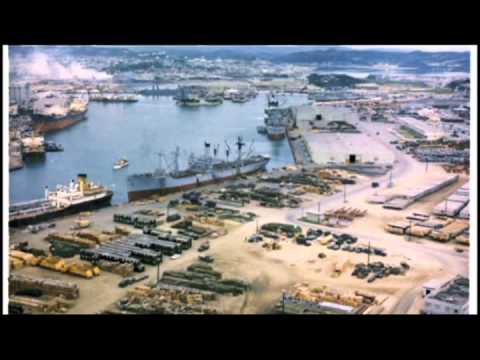[Ed. Note: Between 2012 and 2014 we posted a number of articles on contemporary affairs without giving them volume and issue numbers or dates. Often the date can be determined from internal evidence in the article, but sometimes not. We have decided retrospectively to list all of them as Volume 10, Issue 54 with a date of 2012 with the understanding that all were published between 2012 and 2014.]
A new TV documentary reveals the toxic legacy of military defoliants on America’s “Keystone of the Pacific”
On May 15 2012, Ryukyu Asahi Broadcasting aired a primetime TV documentary to commemorate the 40th anniversary of Okinawa’s reversion to Japanese control. Titled “Defoliated Island – Agent Orange, Okinawa and the Vietnam War,” the program featured 7 U.S. service members who were exposed to military defoliants on the island during the 1960s and early ‘70s. As well as these accounts, it showed interviews with Okinawan civilians worried that they, too, have been affected by these dioxin-tainted herbicides which continue to sicken millions of people in Vietnam today.
 |
The documentary was based largely upon the research of Asia-Pacific Journal associate, Jon Mitchell, who has been investigating the issue for the past two years. In that time, he has interviewed dozens of U.S. veterans poisoned by these chemicals in Okinawa and found evidence of Agent Orange usage on more than 15 U.S. installations on the island – including the possibility that it was buried in Chatan (today a popular tourist town) and the Marine Corps base at Futenma. In August, the discovery of a U.S. army report appeared to provide the smoking gun that 25,000 barrels of Agent Orange had been stored in Okinawa during the Vietnam War.
However, despite this wealth of evidence, the U.S. government has repeatedly denied that Agent Orange was ever on the island. As a result, hundreds of sick American veterans have been refused medical assistance and the Japanese government has been able to reject calls from citizens’ groups for health surveys and environmental testing in the island.
In November 2012, Japan’s Association of Commercial Broadcasters awarded the documentary a Commendation for Excellence and shortlisted it for a prestigious Broadcast Culture Award. On his homepage, Mitchell called the prizes “a rare nod from the mainland (Japanese) media that all too often shy away from Okinawan issues.”
The documentary has now been made available in English. According to Mitchell, “It is hoped that the English version will help to convince the governments of Japan and the USA to finally acknowledge the poisoning of American veterans and pave the way for long-overdue investigations into the health impact on Okinawa civilians as well as the environmental damage to their communities.”



